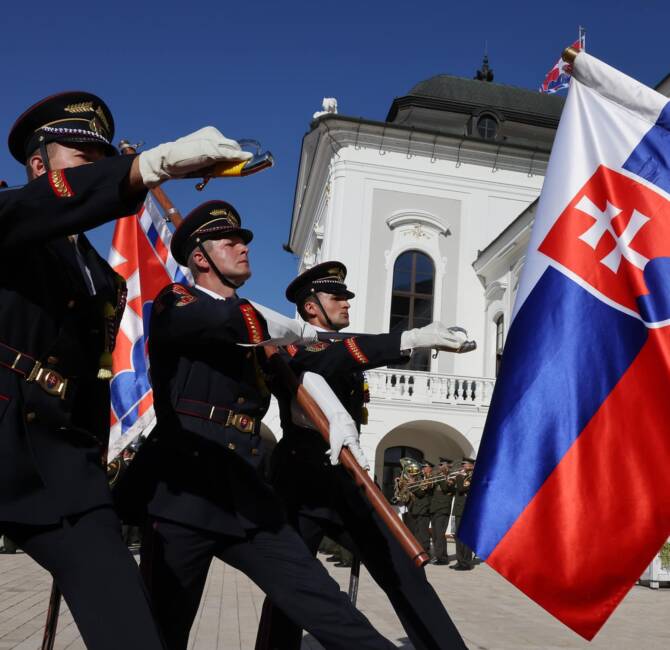Poland – While Belarusian border guards are turning back to the Polish and Latvian borders migrants – mainly Iraqis but also Afghans – that Lithuania is no longer willing to let through its territory, and while the government of Mateusz Morawiecki, supported by Polish public opinion, is following in the footsteps of the Lithuanians, a heterogeneous coalition combining the Catholic Church, the European Court of Human Rights (ECHR), the UN and even the feminist radicals of the “Women’s Strike” movement are pleading for the Polish border to be opened to migrants stranded on the Belarusian side.
“Hospitality to strangers is one of the determinants of our faith”
On Monday 23 August, the Polish Bishops’ Conference took a stand on the subject of Middle Eastern migrants coming from Belarus, criticising the closure of the border: “Hospitality to strangers is one of the determinants of our faith”, wrote Krzysztof Zadarko, auxiliary bishop of Koszalin-Kołobrzeg (Pomerania) and president of the Council of the Polish Bishops’ Conference for Migration, Tourism and Pilgrimages. Going against the tide of Polish public opinion, he went on: “Feeding resentment and hostility towards newcomers who find themselves in a dramatic situation is an undignified act.” The Polish bishop acknowledged that there may exist “understandable concern for our own citizens”, but he insisted that
“indifference is not an authentically Christian attitude”, we must “help those in need, assuming the mission of the Good Samaritan”, and “we are certain that those responsible for enforcing the law will fully respect international obligations towards those seeking protection”.
[…] Bishop Zadarko further wrote that “To provoke fear of others is inhumane and anti-Christian. Our ancestors were emigrants and refugees during the partitions, during the Second World War and during the time of communism. They were helped by people from other cultures and religions. To deny newcomers their basic rights is to turn away from our own history and to renege on our Christian heritage. ”
ECHR says Poland must help migrants, but Minsk stands in the way
Two days later, on Wednesday 25 August, the European Court of Human Rights sitting in Strasbourg called on Poland and Latvia to provide
“food, water, clothing, adequate medical care and, if possible, temporary shelter”
to the migrants who have been stranded for weeks on Belarusian territory between Polish or Latvian border guards on one side and their Belarusian counterparts on the other. The ECHR did clarify, however, that “this measure should not be understood as requiring that Poland or Latvia let the applicants enter their territories”. The Polish authorities have declared their readiness to provide assistance to a group of 32 migrants on Belarusian territory near the Polish village of Usnarz Gorny (Podlaskie voivodship, in eastern Poland). But they argue, as Deputy Interior Minister Maciej Wąsik did on Twitter, that the Belarusian authorities refuse to let this aid enter Belarusian territory. Belarus is not a signatory to the European Convention on Human Rights, so the ECHR recommendations do not apply to it.
“Countries must respect the right to seek asylum”
On Thursday, the representative in Poland of the UN refugee agency (UNHCR), Christine Goyer, called on “the Polish authorities to
provide access to territory, immediate medical assistance, legal advice, and psychosocial support to these people. […] Countries have the legitimate right to manage their borders in accordance with international law [but] they must also respect human rights, including the right to seek asylum.”
Polish Prime Minister Mateusz Morawiecki replied on this last point that the migrants stranded at the border could very well, if they are refugees, seek asylum in Belarus.
Marta Lempart condemns “the cruelty of the Polish system”
At the same time, the Afghan and Iraqi migrants have also gained the support of the Polish far left, including the notorious radical feminist movement “Women’s Strike” led by activist Marta Lempart, who went to the scene, condemning the fact that
“the PiS government is keeping [migrants] in a state of extreme exhaustion, cutting them off from any help.”
Public opinion supports the government’s action
According to a recent survey conducted by the IBRiS Institute for Polsat News and quoted by the website Notes from Poland, 55% of Poles are opposed to Poland taking in these groups of migrants, while 38% are of the opposite opinion. Similarly, 47% (against 44%) approve of the Polish government’s plan to build a 2.5-metre-high anti-migrant fence on the Belarusian border, as Lithuania has already undertaken to do. This fence will be similar to the one Hungary erected on its southern border in 2015.




